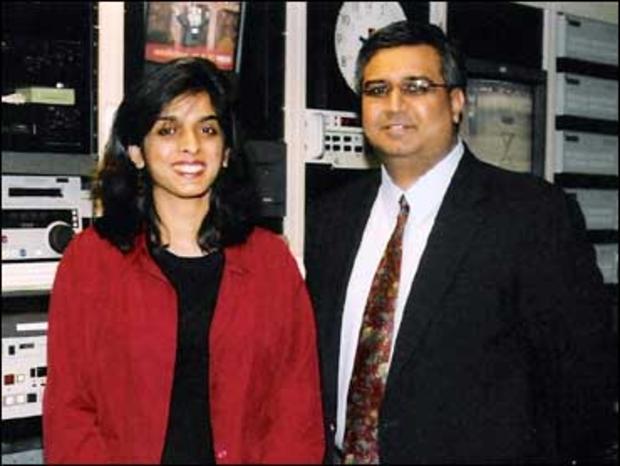Muzzammil Hassan: Man Accused of Beheading Wife Says He's the Victim
NEW YORK (CBS/AP) Muzzammil Hassan, a western New York man accused of beheading his wife at the Muslim-oriented television station they founded, will claim he was a victim of years of abuse at home.
Hassan was in a Buffalo courtroom Friday, where he fired the lawyer who has been representing him for nearly a year and hired a new one with a different strategy.
New lawyer Frank Bogulski says he'll pursue a battered-person defense.
Hassan's previous lawyer had planned to argue that emotional distress prompted the February killing of 37-year-old Aasiya Hassan in offices of the suburban Buffalo television station.
Prosecutors say the case has dragged on too long and they want the judge to bar any psychiatric defense.
The Hassans lived in Orchard Park - a well-off Buffalo suburb that hadn't seen a homicide since 1986 - and started Bridges TV there in 2004 with the message of developing understanding between North America and the Middle East and South Asia. The network, available across the U.S. and Canada, was believed to be the first English-language cable station aimed at the rapidly growing Muslim demographic.
Orchard Park Police Chief Andrew Benz said last year that his officers had responded to domestic incidents involving the couple, most recently Feb. 6, the day Muzzammil "Mo" Hassan was served with the divorce papers and an order of protection.
"I've never heard him raise his voice," said Paul Moskal, who became friendly with the couple while he was chief counsel for the FBI in Buffalo. Moskal would answer questions in forums aired on Bridges TV that were intended to improve understanding between Muslim-Americans and law enforcement.
"His personal life kind of betrayed what he tried to portray publicly," Moskal said.
On Feb. 12, 2009, Hassan went to a police station and told officers his wife was dead at the TV studio.
"We found her laying in the hallway the offices were off of," Benz said. Aasiya Hassan's head was near her body.
"I don't know if [the method of death] does mean anything," said the chief, who would not discuss what weapon may have been used. "We certainly want to investigate anything that has any kind of merit. It's not a normal thing you would see."
